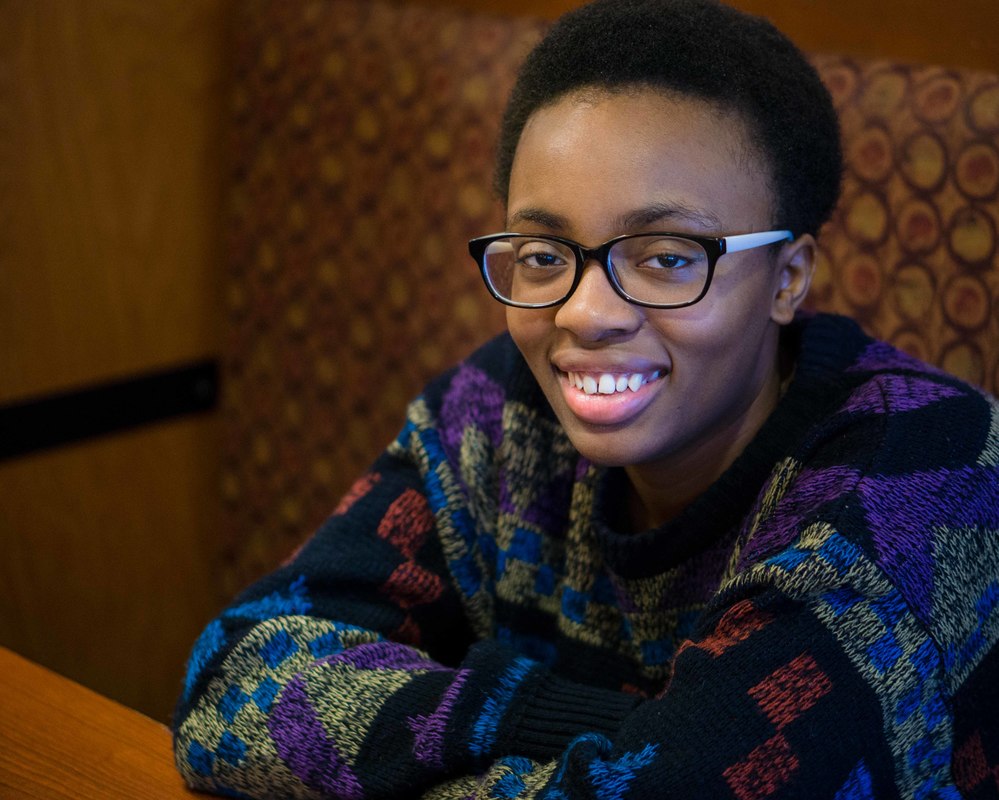“Crossing over boundaries is really, really hard and hurts sometimes. I live in community with a group of students who have made a commitment to racial reconciliation. We’re committed to talking through hard things and to really listening to and learning from each other. It would be easier for sure to avoid those conversations, especially when something racially charged happens on campus and I’m like, I don’t want to talk to anybody and I’m angry at all the white people. So yeah, it’s hard, but it’s also really cool to know we can talk about our frustrations and depend on each other to hear us. I’ve been surprised at the diversity of people who are willing to engage. For example, it surprised me --- in a good way --- that upper class white frat guys were attending our events. I realized that I had stereotyped them as not caring about racial reconciliation issues, and that wasn’t necessarily true.
“This experience has definitely changed my perspective on the importance of being in spaces that are not natural to me. I’m kind of forced into that anyway because I’m on a college campus. But instead of feeling like a victim and like there’s nothing I can do to change things, I’m seeing that I can be an active participant in those arenas where I might be the minority. I guess I could just stay in my little group and not engage, but that’s not what I want to do. I’m learning to be intentional about crossing lines. And I’m learning not to make assumptions about whether or not people like me. Even if they don’t, I can still reach out to them. Wherever I am and whomever I’m around, we’re all just human beings; we’re alike in so many ways. Just seeing how much I have in common with my roommates, for example --- both of whom are white --- has been so cool. One in particular is very similar to me in the way she thinks and processes things; we’re both extremely internal people. I love both of them a lot. We’re willing to talk through tough things, help each other, and learn from each other. The process of getting past my own hesitations and selfishness is hard --- I’m still working on that and I’m not very good at it sometimes --- but it’s definitely worth the effort.”
“This experience has definitely changed my perspective on the importance of being in spaces that are not natural to me. I’m kind of forced into that anyway because I’m on a college campus. But instead of feeling like a victim and like there’s nothing I can do to change things, I’m seeing that I can be an active participant in those arenas where I might be the minority. I guess I could just stay in my little group and not engage, but that’s not what I want to do. I’m learning to be intentional about crossing lines. And I’m learning not to make assumptions about whether or not people like me. Even if they don’t, I can still reach out to them. Wherever I am and whomever I’m around, we’re all just human beings; we’re alike in so many ways. Just seeing how much I have in common with my roommates, for example --- both of whom are white --- has been so cool. One in particular is very similar to me in the way she thinks and processes things; we’re both extremely internal people. I love both of them a lot. We’re willing to talk through tough things, help each other, and learn from each other. The process of getting past my own hesitations and selfishness is hard --- I’m still working on that and I’m not very good at it sometimes --- but it’s definitely worth the effort.”

 RSS Feed
RSS Feed